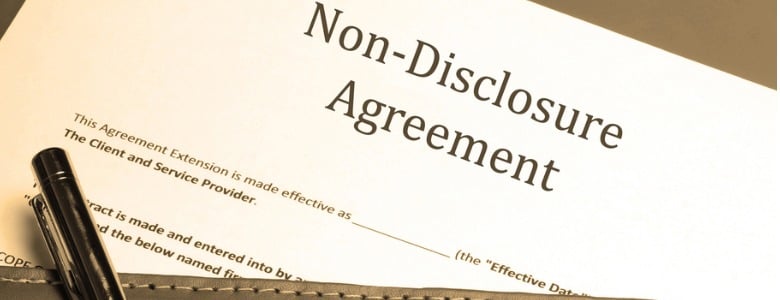
Four Common NDA Mistakes (and How to Avoid Them)
Drafting a strong, airtight non-disclosure agreement is a crucial skill when working with an outside partner. Good NDAs ensure that your innovations, secrets, designs and data will remain confidential, even when shared with someone external to your company.
Unfortunately, the simple fact of signing an NDA doesn't mean that you've done enough to protect yourself. A single error or omission may be enough to jeopardize the very survival of your organization. In order to minimize the risk of information falling into the wrong hands, make sure to avoid the four common NDA traps below.
1. Typos and Clerical Errors
Even the smallest mistake when writing the name of your NDA partner, such as forgetting expressions like "Limited," "Inc." and "Co." after the business name, can put the contract at risk of being invalidated.
Many companies have two different names: the "legal name" used in official documents, and the "trading name" or "DBA name" used for conducting business and interacting with the public. Make sure that the NDA includes the company's legal name, as well as the trading name and the business address in order to eliminate ambiguities.
2. Poorly Defining "Confidentiality"
NDAs normally prohibit the signer from sharing "confidential" information. Without an explicit and workable definition of "confidentiality," however, your contract will be more difficult to enforce, which means that it's more likely to be overturned in court if you become involved in litigation.
To smooth over obstacles and make your working relationship more harmonious, it's critical to provide a clear explanation of confidentiality. This should include which type of information is considered confidential, how this information will be shared, how this information will be used by the partner and how long the information must be kept confidential.
In addition, NDAs should explicitly define information that's not considered confidential. This may include information disclosed prior to signing the NDA, information that's public knowledge and information obtained from a third party.
3. Not Defining Enforcement and Penalties
What good is signing an NDA if there are no consequences to the signing parties for breaking it? Because NDA disputes and violations can have dire effects on the health of your business, you need to take them seriously and agree upon how to resolve them well in advance.
Depending on the type of information disclosed and the gravity of the breach, you may want to settle disputes using mediation or move directly to litigation. The different paths available to you, and the financial penalties that you may want to assess, should be well-defined in the NDA in order to reduce the chance of a violation and make it easier to proceed if one occurs.
4. Having the Wrong Person Sign
Even the most well-written NDA can be invalidated if it's signed by the wrong person. For example, the representative may actually have no authority to bind the company to an NDA, or the company may require multiple people to all give their approval.
In order to avoid an unpleasant surprise down the line, make sure that you obtain written confirmation from the company that the signatory or signatories are the correct people to sign NDAs on the company's behalf.
Final Thoughts
Signing NDAs is of vital importance in order to protect your sensitive business information. By keeping your NDAs and other important business documents safely and securely in a dedicated electronic contract management system, you can minimize your legal risk and improve efficiency and productivity.







